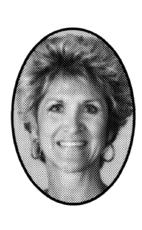Mr. Speaker, I rise on a question of privilege pursuant to Standing Order 48(1). The privilege in question is one that is both the least questioned and the most fundamental right of any member of Parliament, freedom of speech.
The breach of freedom of speech, as I will state, involves the inability of me as a member of Parliament and others to participate in debate on government legislation or to be an active member of House committees.
I am aware that we as parliamentarians are bound by the rules and orders of the House with respect to participation in debate. However, as we have seen in the past, the status quo regarding parliamentary reform has been challenged. It is my intention today
to stand to challenge the status quo respecting the freedom of speech of individual members of Parliament.
The question I raise asks for the Speaker to give additional recognition to the members of Parliament who do not have party status in matters of debate and committee representation. I would like to point out that when I refer to members who are without party status and currently sitting in the House, I am referring to those members who are not officially recognized by the House of Commons due in part to the 12 member party threshold to which we as parliamentarians are currently bound through the 1963 statute that is embodied in the Parliament of Canada Act.
We are currently sitting in the 35th session of Parliament with a high number of MPs without party status representing constituents all across Canada. It is now time that the House recognize this as a significant deficit in terms of opinion and representation in debate. Without these voices the constituents in 15 ridings are quiet.
There have been a number of important debates in which those members have been unable to participate, and Bill C-41 is one of those in which many of us would very much like to participate.
Under current parliamentary rules and practice the opportunities for members with non-party status are limited in committee work. Political parties dominate the ever increasing role of the House and it is extremely difficult for members who do not belong to a party to have the same influence or to participate as fully as members who are party members.
Freedom of speech is a fundamental parliamentary privilege. Professor W.F. Dawson of the University of Alberta said in a 1959 article:
The privilege of freedom of speech is probably the most important and least questioned of all privileges enjoyed by the House. In its most elementary form this privilege was stated in the Bill of Rights which declared that `the freedom of speech and debates of proceedings in Parliament ought not to be impeached or questioned in any court or place outside of Parliament'. Today, it is one of the privileges requested by the Speaker at the beginning of every Parliament.
Freedom of speech means that the members have the right to speak freely in the Chamber without fear of intimidation or challenge. What they say is privileged, protected or immune from being questioned outside of Parliament.
Joseph Maingot, former law clerk and parliamentary counsel of the House of Commons, has said:
The privilege of freedom of speech, though of a personal nature, is not so much intended to protect the members against prosecutions for their individual advantage but to support the right of people by enabling their representatives to execute the functions of their office without fear either of civil or criminal prosecution.
Freedom to speak freely is not the sole element of this privilege. Members must also be free to speak. This means that they have to have opportunities to participate in debate and to participate fully in the proceedings of Parliament, including parliamentary committees. Even if members are not inhibited in terms of what they say in the House, they are still inhibited in not being given opportunities to speak. The right to say whatever they want is meaningless if there is no chance to speak in any case.
Freedom of speech does not mean that members have an unlimited or unrestrained right to speak on every issue. The rules of the House impose limits on the participation of members and it is the duty of the Speaker to restrain those who abuse the rules.
It is clear that no member of the House can speak whenever he or she wishes. It is the role of the Speaker to recognize members and to preserve order and decorum. The democratic rights of an elected member are diminished when they do not possess the same opportunities as other members.
The rights of members and through them of their constituents must be respected. I speak from my heart for Calgary Southeast. The Speaker must be assured that the rights of all members of the House are protected. This is an ongoing process and must be reviewed afresh from time to time. The question must be asked whether independent or non-affiliated party members are being allowed to fully participate in the proceedings of the House and its committees. The privileges of these members, their freedom of speech and the fundamental tenants of parliamentary democracy must be satisfied.
Mr. Speaker, if you find that I have a prima facie case of privilege, I am prepared to move the appropriate motion, seconded by the member for Kamloops.
I appreciate the time to speak.

